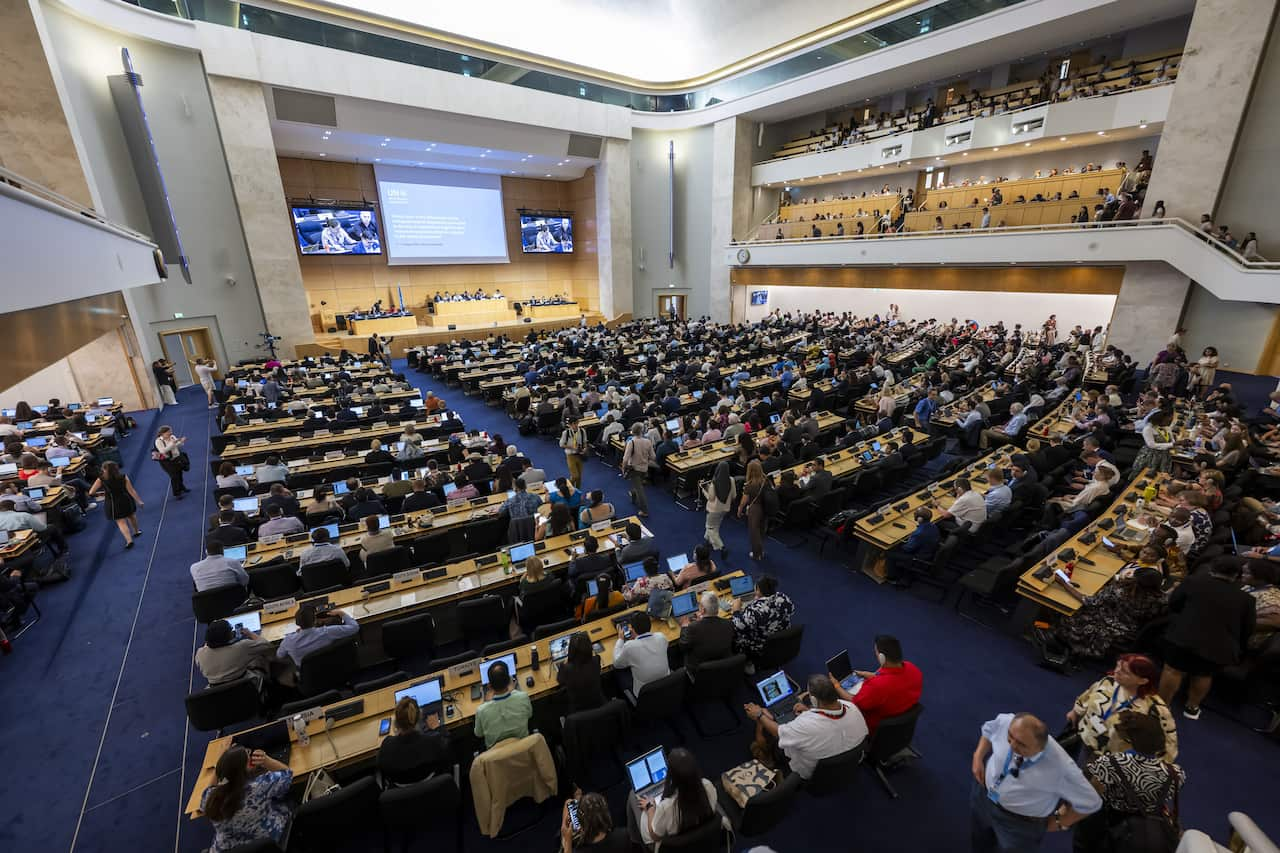Share this @internewscast.com
A large bloc of nations including the European Union, Britain and many African and Latin American countries called for curbing plastic production and phasing out toxic chemicals used in plastics.
While around 100 nations sought caps on plastic production, a number of countries including the United States stood against them and argued caps were unnecessary and a threat to their economies and industries.

While a large number of nations argued for caps on plastic production others, including the US, stood against them. Source: AAP / Martial Trezzini/EPA
‘Missed a historic opportunity’
France’s ecological transition minister Agnes Pannier-Runacher said she was “disappointed” and “angry” and blamed a handful of countries “guided by short-term financial interests” for blocking an ambitious treaty.
The World Wide Fund for Nature said the talks exposed how consensus decision-making “had now “outplayed its role in international environmental negotiations”.
What happens now?
While 15 per cent of plastic waste is collected for recycling, only nine per cent is actually recycled.












